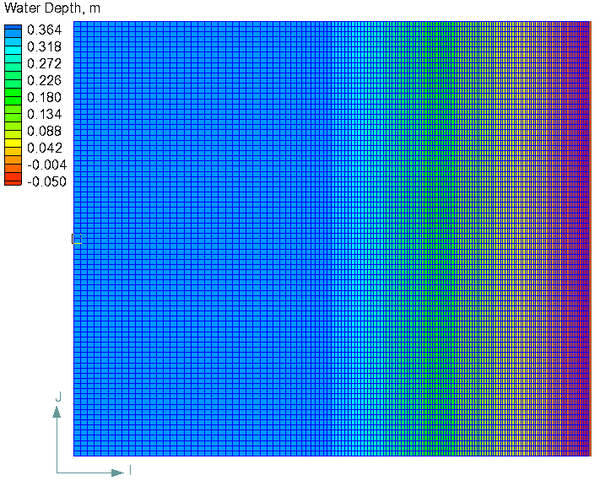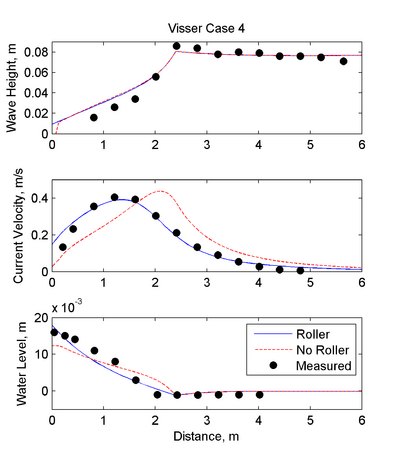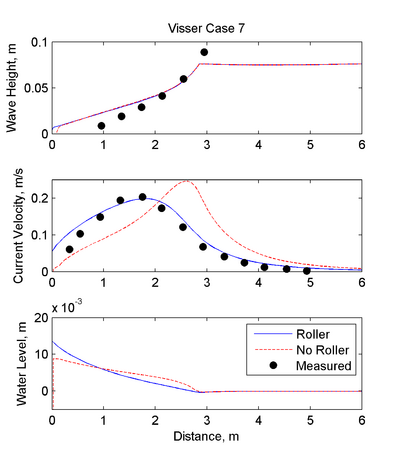Visser
Experimental Setup
In 1991, Visser conducted eight laboratory experiments of monochromatic wave on a planar beach and collected measurements on waves, currents and water levels. The bathymetry consisted of a 1:10 slope for the first 1-m seaward distance, a 1:20 slope for the next 5-m distance, followed by a 5.9 m distance of flat bottom to the wave generator. Both experiments had incident wave heights of 0.078 m, peak periods of 1.02 sec and an incident wave angle of 15.4°. Experiment 4 was run over a concrete bed and experiment 7 was run of a thin 0.005-0.01 m layer of gravel grouted on the concrete floor.
| Wave Parameter | Case 4 | Case 7 |
|---|---|---|
| Height | 0.08 m | 0.08 m |
| Period | 1.02 m | 1.02 m |
| Incident Angle | 15.4° | 15.4° |
Model Setup
The computational grid (shown in Figure 1) consists of 84 rows and 147 columns with a constant grid resolution in the longshore direction of 0.15 and a variable grid resolution between 0.04 and 0.15 m in the cross-shore direction. A zero water level was forced at the offshore boundary.

Results
The figures below show a comparison between measured and computed bed elevations.
| Calibration Parameters | Case 4 | Case 7 | Default |
|---|---|---|---|
| Wave-current bottom friction | Fredsoe 1984 | Fredsoe 1984 | Quadratic |
| Manning's n | 0.0115 | 0.018 | 0.025 |
| Roller | On | Off | Off |
| Roller dissipation coefficient | 0.1 | - | 0.1 |
| Roller efficiency coefficient | 0.8 | - | 1.0 |


References
- Visser, R. J. (1991) “Laboratory measurements of uniform longshore currents”. Coastal Engineering, 15, 563-593.